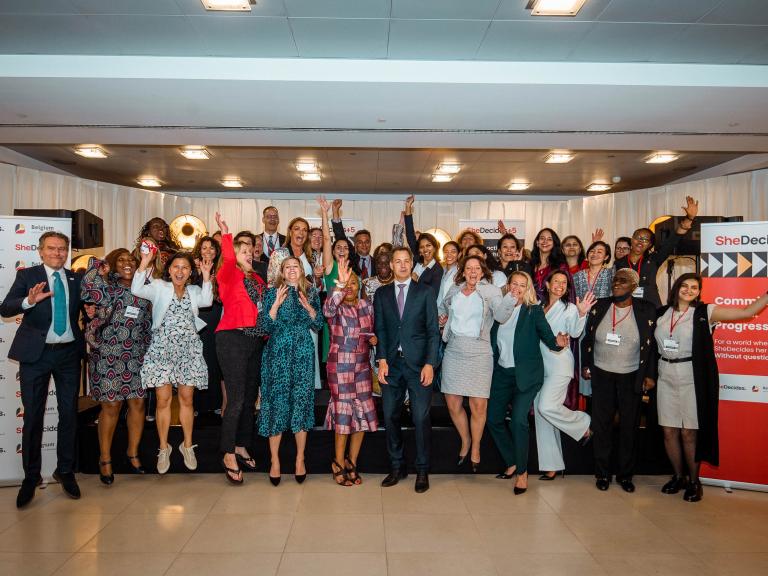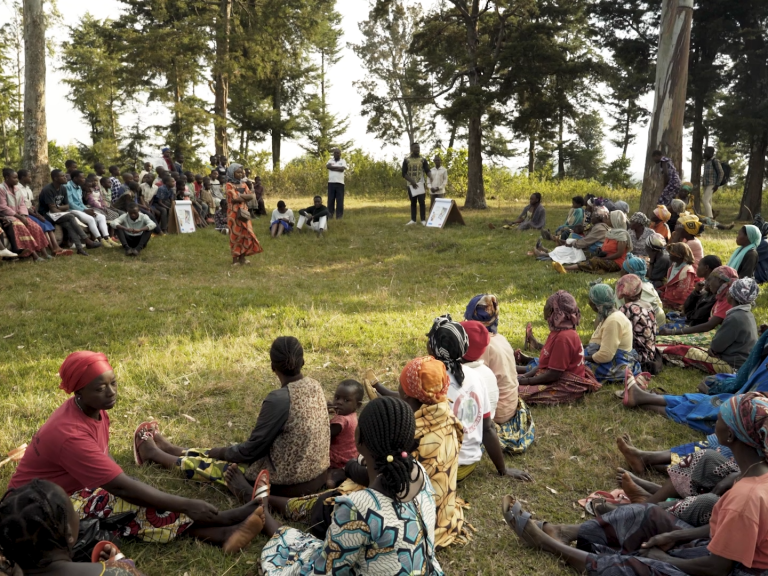-
Last updated on

Children viewing the panels of the #Stolenmemory exhibition. © FPS Foreign Affairs
At the end of WWII, the Allies, along with the Red Cross, began to search for missing persons. To this end, they created an International Tracing Service under the supervision of an international commission of 11 member states, including Belgium. The service was based in Bad Arolsen, centrally located between the 4 occupied areas of Germany.
When the Red Cross ceased involvement in 2012, the organisation was reformed. In 2019, it was renamed the Arolsen Archives. Today, it is the world's largest archival centre for displaced and missing persons, with as many as 30 million documents on 17.5 million people.
20,000 requests annually
Almost 80 years after WWII, the Arolsen Archives remain a highly valuable organisation. The 20,000 missing persons inquiries received every year prove this. In addition to documents, the archives also have several thousand personal items that they are trying to return to relatives. They also aspire to shed some light on the fate of victims of Nazism and to provide information to survivors and families.
At the same time, the organisation grew into a scientific research centre on Nazi persecution, forced labour, and the Shoʾah (= the systematic killing of the Jews by the Nazis). It also provides educational work. After all, it remains extremely important to preserve the testimonies from that era and not to forget what happened back then. Certainly, the younger generation must remain aware of this.

The #Stolenmemory exhibition at the court of honour of the Egmont Palace in Brussels. © FPS Foreign Affairs
#StolenMemory
From June 2021 to June 2022, the FPS Foreign Affairs held the presidency. This takes place on a rotating basis among the 11 member states. In addition to Belgium, these are France, Germany, Greece, Israel, Italy, Luxembourg, the Netherlands, Poland, the UK and the US.
Among other things, the presidency developed a travelling exhibition in containers with the motto #StolenMemory. Belgium allocated 200,000 euros for this purpose. The exhibition features short biographies of disappeared persons with photographs of their personal items such as watches, bracelets, rings, letters and ballpoint pens. The aim is to allow the next of kin to recover those items.
The exhibition has already been in Lier, Mechelen (Dossin Barracks) and Brussels (Cinquantenaire and Egmont Palace's main courtyard), and is continuing its journey through Belgium. At the moment, for example, it can be seen in Bastogne, and then in the fortress of Breendonk, Liège, Eupen, Gembloux and Tournai, among others. After that, it might also visit the Netherlands and Luxembourg.

More than 13 million documents of the Arolsen Archives have already been digitised. © Arolsen Archives
Digitalisation
Belgium devoted its presidency, among other things, to the digitalisation of some 3,500 Belgian records. Indeed, the Arolsen Archives are aiming to have just about all the documents available digitally by 2025.
But when many documents are publicly accessible online, the question of privacy naturally arises. The closing plenary conference at Egmont Palace therefore adopted regulations for the protection of personal data – work that had been underway for several years. This approval was essential to the organisation's continued action.
Belgium has discharged its presidential duties with diligence. After all, our country considers it essential that all the victims of Nazism, including the victims of the Shoʾah, be remembered and that we continue to fight against anti-Semitism. This is why Belgium is also part of the International Holocaust Remembrance Alliance, whose motto is: 'A world that remembers the Holocaust. A world without genocides.'
More on People

A user-friendly website with a new look
As of 21 June 2022, we have a brand-new website that puts the user first.

5 years of SheDecides: because women's rights are fundamental human rights
In May 2022, Brussels celebrated 5 years of SheDecides. The movement stands up worldwide for women's right to make their own dec...

A holistic approach to reducing poverty
The aim of SDG 1 is to end poverty in all its forms everywhere by 2030. SOS Children's Villages approaches this goal from a mult...
